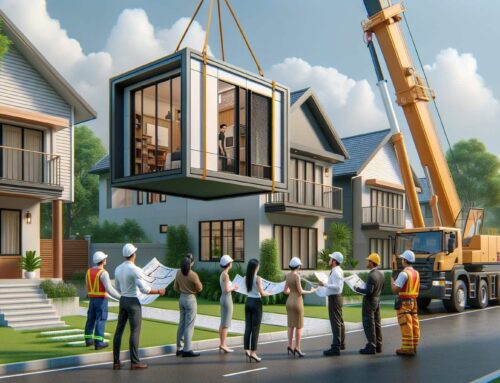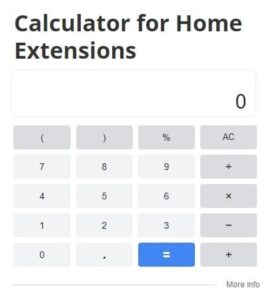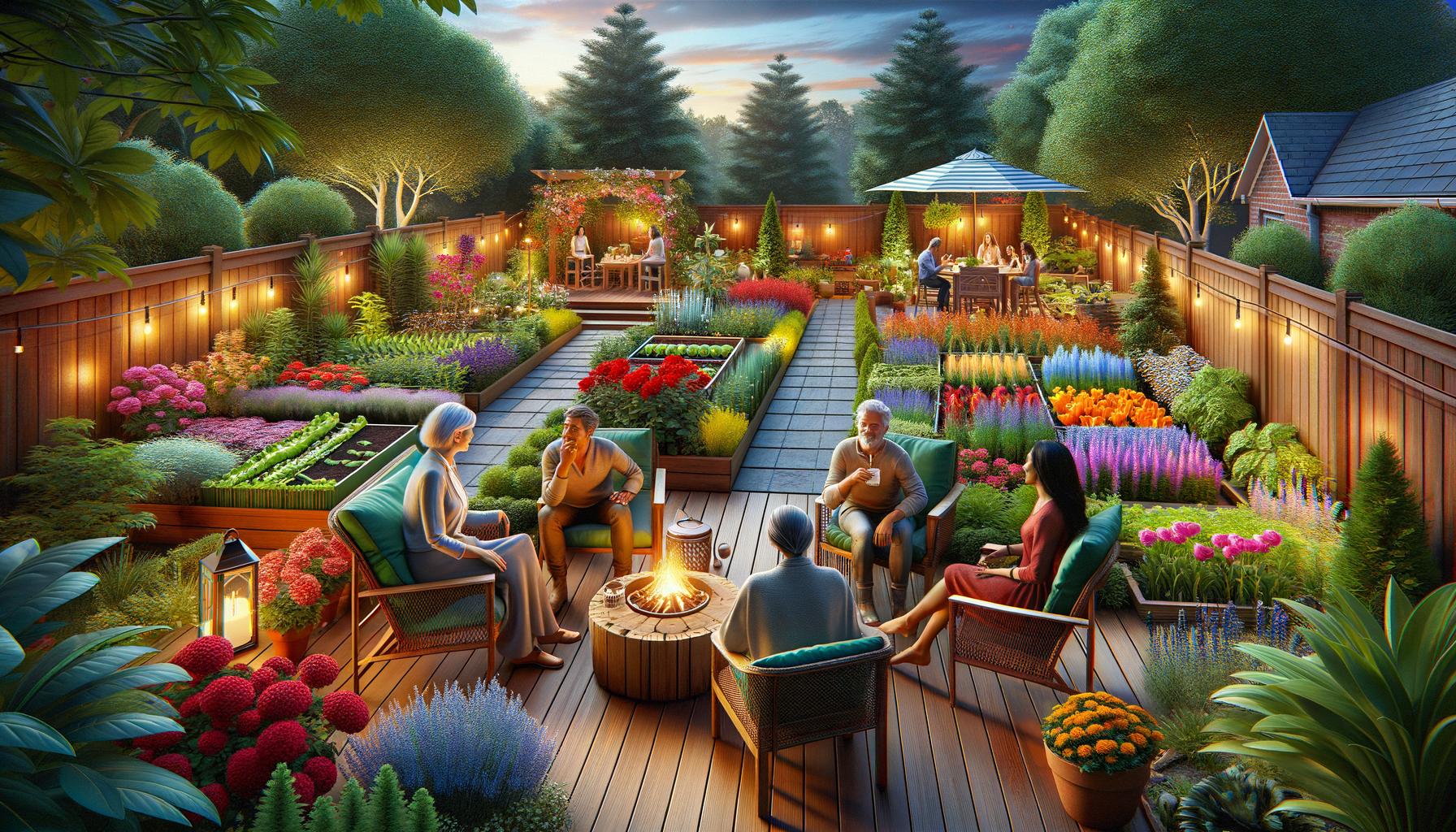
Australian homeowners spend an average of $15,000 on outdoor renovations annually, yet 60% report dissatisfaction with their results due to poor planning.
We at Home Owners Association have compiled proven garden renovation ideas that deliver both immediate visual impact and long-term value. Smart planning and strategic plant selection can transform any outdoor space while staying within budget.
Planning Your Garden Renovation Project
Successful garden renovation starts with a comprehensive site analysis that most homeowners skip. The Royal Horticultural Society confirms that soil pH testing measures soil acidity or alkalinity, with pH 7.0 considered neutral and values below 7.0 indicating acid soil, yet only 25% of Australian gardeners test their soil before planting.
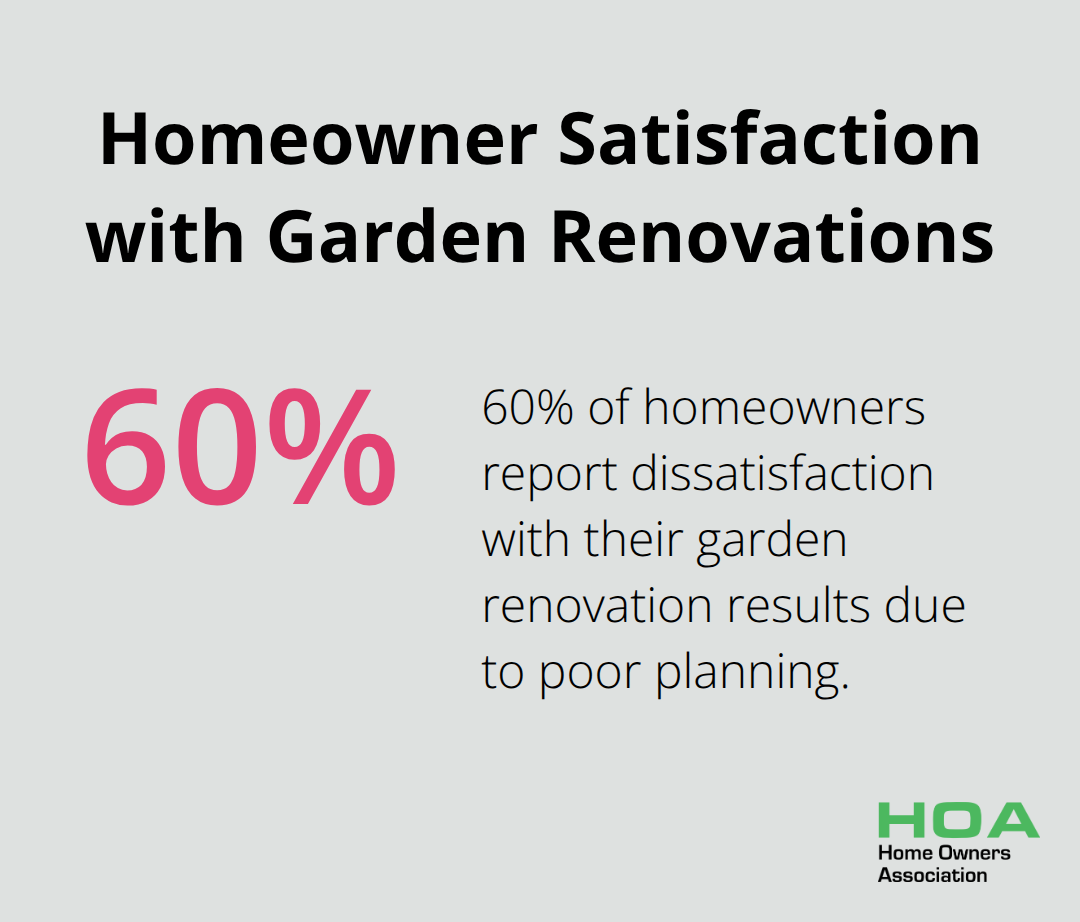
Assess Your Current Space and Soil Conditions
Take measurements of your entire outdoor space and note sun patterns throughout the day, existing drainage issues, and wind exposure. Document problem areas with photos during different weather conditions to identify where water pools or plants struggle. Test your soil pH with a simple kit from any garden centre (most cost under $15). Check drainage by digging a 30cm hole and filling it with water – proper drainage empties the hole within 24 hours.
Set a Realistic Budget and Timeline
Garden renovations require strategic financial planning with realistic expectations. The National Association of Landscape Professionals reports that well-planned projects stay within budget 78% more often than rushed renovations. Allocate 40% of your budget to hardscaping elements like paths and retaining walls, 30% to plants and soil improvements, and 30% to labour or professional services. Always add a 15% contingency for unexpected issues like poor drainage or root removal.
Timeline planning should account for Australian seasonal patterns. Plant establishment works best during autumn and spring months when temperatures moderate and rainfall increases.
Choose Plants Suitable for Australian Climate Zones
Australian climate zones determine plant success more than personal preferences. Native plants show different water usage patterns compared to exotic species, with water availability affecting both native community and exotic species biomass. Focus on indigenous species for your specific region – Grevillea and Banksia varieties thrive in most Australian conditions while providing year-round structure.
Avoid European plant varieties that struggle with Australian heat and unpredictable rainfall patterns. Select plants based on mature size to prevent overcrowding and reduce future maintenance costs. This foundation work sets the stage for implementing the essential renovation techniques that transform your vision into reality.
Essential Garden Renovation Techniques
Proper soil preparation determines renovation success more than expensive plants or decorative features. Australian soils are mostly ancient, strongly weathered and infertile by world standards, which requires organic matter additions to improve drainage and nutrient availability. Add 5-10 centimetres of quality compost to existing beds and work it into the top 30 centimetres of soil.
Soil Preparation and Improvement Methods
The Irrigation Association confirms that well-prepared soil reduces water requirements by up to 50% compared to untreated ground. Test drainage after soil amendment – dig holes and time water absorption. Improved soil drains within 12 hours rather than waterlogged conditions that persist for days.
Clay-heavy soils benefit from coarse sand additions (not fine sand which creates concrete-like conditions). Mix one part sand with two parts compost for optimal results. Raised beds solve drainage problems in areas where soil improvement proves difficult or expensive.
Installing Efficient Irrigation Systems
Drip irrigation systems reduce water consumption by 30-50% compared to traditional sprinklers while they deliver superior plant health results. Position drip emitters 30 centimetres apart for vegetable gardens and 60 centimetres for established shrub beds.
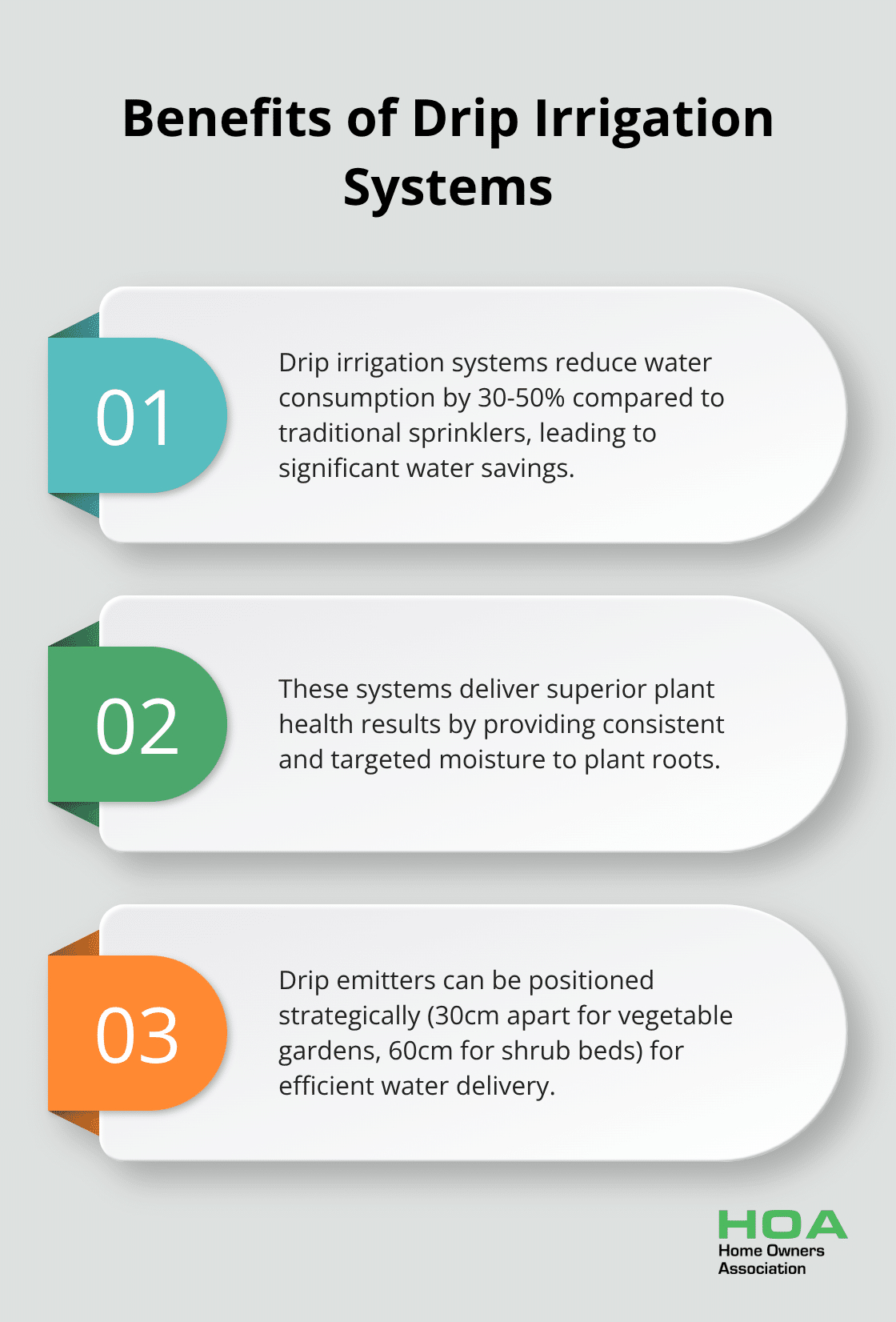
Smart controllers with weather sensors prevent water waste during rain periods and adjust schedules based on seasonal requirements. Smart irrigation technology saves an average of 8,800 gallons annually. Install separate zones for different plant water needs – natives require minimal irrigation while exotic species need consistent moisture.
Creating Functional Outdoor Living Areas
Create distinct outdoor zones with different surface materials rather than single-purpose spaces. Install permeable pavers for entertainment areas to manage stormwater runoff while you provide stable surfaces for furniture. The Landscape Industries Association confirms that permeable surfaces reduce runoff by 90% compared to concrete.
Position seating areas to capture morning sun during winter months and afternoon shade during summer. Built-in storage benches serve dual purposes while they maintain clean sight lines. Outdoor kitchens increase property values by 15-20% when positioned to connect seamlessly with indoor spaces through large doors or glass panels.
These technical foundations create the framework for cost-effective renovation strategies that maximise your investment returns.
Cost-Effective Garden Renovation Strategies
Smart garden renovation requires strategic timing and material sourcing rather than expensive shortcuts. Softscaping costs typically range from $500 to $5,000, depending on the size of the garden and the types of plants chosen, making DIY approaches particularly valuable. Focus on high-impact changes like pathway installation, raised bed construction, and strategic placement of lights that transform spaces dramatically.
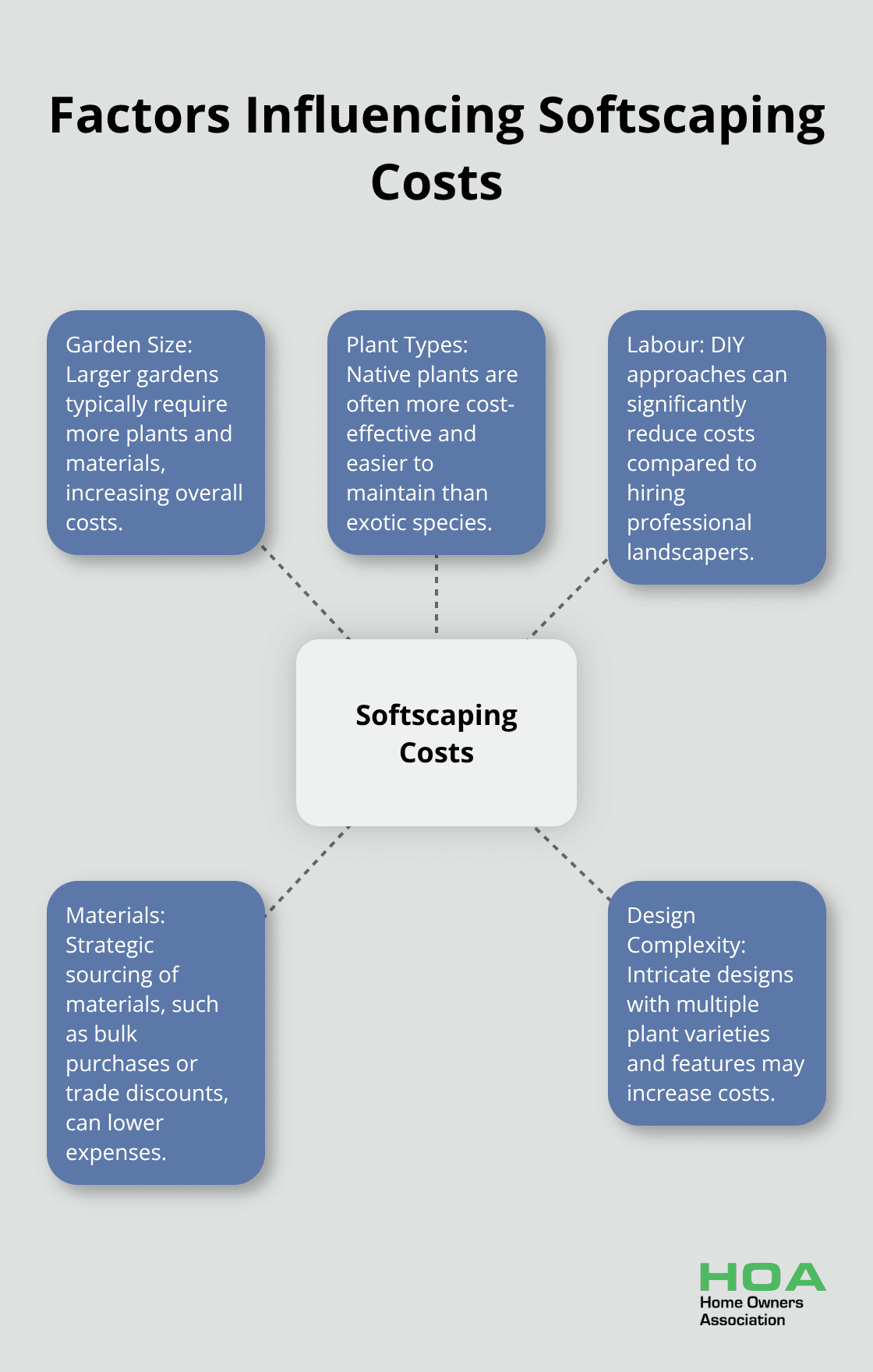
Gravel pathways cost $8-12 per square metre compared to $45-60 for professional paving, yet create identical functional benefits. Raised beds built from recycled timber save $200-400 per bed while they provide superior drainage and soil control. Solar-powered LED systems cost $15-25 per fixture and eliminate electrical installation expenses entirely.
Strategic Material Procurement
Trade connections reduce material costs by 25-40% compared to retail garden centres. Home Owners Association provides members access to trade pricing and discounts on construction and renovation materials across Australia, which delivers substantial savings on quality products. Purchase bulk materials during autumn clearance sales when retailers discount seasonal inventory by up to 50%.
Native plant tubes provide cost-effective alternatives to mature specimens, yet establish faster with proper care. Wholesale nurseries offer better prices for quantities over 20 plants, making group purchases with neighbours financially attractive.
Optimal Project Timing
Seasonal planning reduces labour costs significantly. Soil preparation during dry months prevents equipment damage and allows precise work that becomes impossible during wet seasons. Plant purchases during dormant seasons reduce costs and improve establishment success rates.
Schedule hardscape projects during winter when contractors offer lower rates due to reduced demand. Material delivery costs drop when you coordinate multiple deliveries on the same day rather than separate trips.
High-Impact DIY Projects
Pathway installation transforms garden accessibility and visual appeal for minimal investment. Decomposed granite paths require only basic tools and create professional-looking results. Edge restraints prevent material migration and maintain clean lines for years.
Raised bed construction uses standard lumber dimensions that minimise waste and cutting requirements. Pre-drill holes to prevent timber splitting and use galvanised bolts for corner connections. Fill beds with quality soil mix (one-third compost, one-third topsoil, one-third coarse sand) for optimal plant performance.
Budget-Friendly Plant Selection
Propagate existing plants through division and cuttings rather than purchase new specimens. Agapanthus and Liriope multiply rapidly when divided every three years. Herb cuttings root easily in water before transplant to permanent locations.
Seed packets cost $2-4 and produce dozens of plants compared to individual seedling purchases. Direct sow vegetables like beans, carrots, and lettuce in prepared beds for maximum value. Native plants from seed provide continuous colour throughout growing seasons while requiring minimal water and maintenance.
Final Thoughts
Successful garden transformation requires methodical planning, strategic material sourcing, and realistic timeline expectations. The data shows that homeowners who test soil conditions, establish proper drainage, and select climate-appropriate plants achieve 78% better long-term satisfaction rates compared to rushed renovations. Professional planning delivers measurable returns through reduced maintenance costs, improved property values, and water conservation benefits.
Smart irrigation systems alone save 8,800 gallons annually while native plant selections reduce care requirements by 50%. These garden renovation ideas create sustainable outdoor spaces that perform well across Australian climate conditions (with proper soil preparation and plant selection). We at Home Owners Association support Melbourne homeowners with expert guidance throughout renovation projects.
Start your renovation journey by conducting soil tests, measuring your space accurately, and establishing a realistic budget with contingency funds. Focus on foundational improvements like drainage and soil preparation before you add decorative elements. Home Owners Association membership provides the resources and support needed to transform your outdoor space confidently and cost-effectively.


